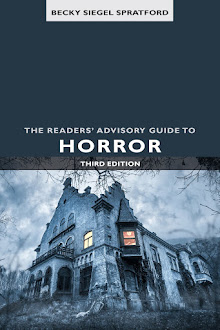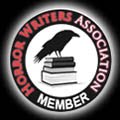Toward the end of 2010, Stephen King quietly released a collection of 4 novellas, called Full Dark, No Stars
I will comment on the stories in order and then talk about the volume's overall appeal.
"1922," the first story reads like a confession. We know from the start that the narrator has killed his wife years before and is alone, waiting to die as he bares his soul. The reader is less of a participant and more of observer here, as we watch Wilf kill his wife to stop her from selling the farm. We watch as his guilt overtakes and ultimately destroys him. There is more than just a passing nod at Poe's "The Tell-Tale Heart
"Big Driver" is an unsettling take on the typical female victim story. A cozy mystery writer is raped and left for dead, but that is just where the story begins. What follows is a revenge fantasy, carefully plotted like a novel by the victim herself. You will cheer her on as she goes after those responsible for her rape, but will you fell good about yourself for it? While we are along for the ride, our protagonist is clearly losing it (she has 2 way conversations with her GPS), making us question who is really responsible for what.
"Fair Exchange" is the only novella in this collection which I would classify as pure horror. The others are more psychological suspense. In Fair Exchange, Dave, is in midlife and dying of cancer. Along an access road he meets Mr Elvid (rearrange the letters). The two make a fair exchange, no souls are sold here, and our protagonist trades his bad fortune in for his best friend's good fortune. This is a dark and bleak story. There is no redemption; things only go from bad to worse. I think King fans may be shocked by this one. Personally, I loved it.
In "A Good Marriage" Darcy Anderson discovers that her "perfect" husband Bob is a serial killer. How she handles this knowledge is shocking, chilling, and to quote another character at the end of the story, "the right thing." I honestly did not know how to feel at the end of this story. From someone who reads a lot of macabre stuff, that is a compliment.
In all of these stories, the protagonists make immoral, even consciously evil choices, but in every single story, they also justify their decisions. The scariest thing is, that King gets the reader to go along. You are disgusted in yourself that you actually think, if even for a second, that the death and destruction these protagonists knowingly enact is okay. But yet, we keep reading...and love it.
These are visceral stories that really probe into the dark side of humanity. King is asking the reader to look at the darkest corners of ourselves. For example, when Mr. Elvid asks Dave who he hates, after thinking it over Dave knows the answer...his best friend. He hates his best friend enough to ruin this friend's life in order to save his own. Can't really get much darker than that.
King is using Full Dark, No Stars to help draw attention to short fiction. He has said that he wants to introduce more people to the format, so he is doing it the best way he can, by using his best-seller status to get people to read his short fiction.
Three Words That Describe This Book: Psychological; Novellas; Dark Side of Humanity.
Readalikes: In honor of King's desire to get more people to read short fiction, I will only suggest readalikes that are short fiction.
King's son, Joe Hill, has a great story collection called 20th Century Ghosts
These Children Who Come at You with Knives, and Other Fairy Tales: Stories
Joyce Carol Oates
My final short story readalike suggestion is a collection by John Langan, and the title says it all, Mr. Gaunt and Other Uneasy Encounters



